Inspiring Progress Through Diplomacy and Business
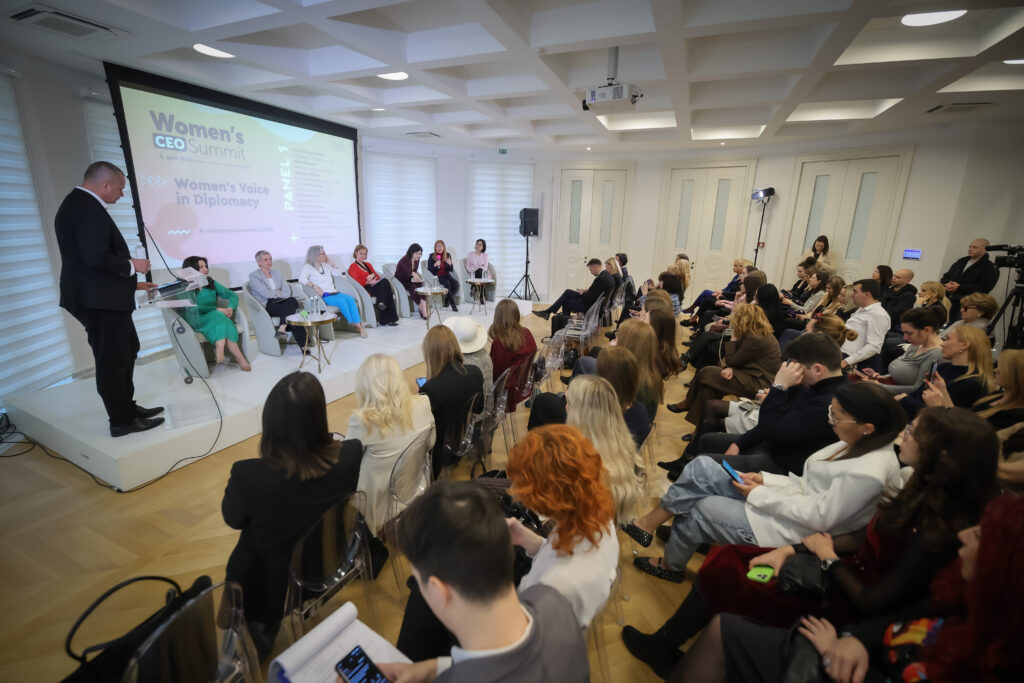 The Women’s CEO Summit, organized by Color Media, was held on April 3rd, in the company of women from the state administration, diplomatic corps, media, cultural institutions and marketing agencies. The conference provided an authentic experience, covering a range of important and inspiring topics. Although women are increasingly present in social and professional fields, they still face challenges in achieving leadership. This conference was an opportunity to hear motivating stories of successful women, exchange experiences and acquire key skills for professional growth. Through education, networking and support, the goal is to encourage women to take the initiative and increase their influence in making important decisions.
The Women’s CEO Summit, organized by Color Media, was held on April 3rd, in the company of women from the state administration, diplomatic corps, media, cultural institutions and marketing agencies. The conference provided an authentic experience, covering a range of important and inspiring topics. Although women are increasingly present in social and professional fields, they still face challenges in achieving leadership. This conference was an opportunity to hear motivating stories of successful women, exchange experiences and acquire key skills for professional growth. Through education, networking and support, the goal is to encourage women to take the initiative and increase their influence in making important decisions.
Women’s Voice in Diplomacy (Voice of Women in Diplomacy) is the first panel in which H.E. Anne Lugon Moulin, Ambassador of Switzerland to Serbia; Milana Rikanović, Director of UN Women in Serbia, H.E. Avivit Bar-Ilan, Ambassador of Israel to Serbia, Andrea Pavukova, President of the IWC in Serbia, Giulia Sykopetrites, Deputy Ambassador of Cyprus in Belgrade; Plamena Halačeva, Deputy Head of the EU Delegation to Serbia and Aleksandra Joksimović, Director of the Foreign Policy Center and former Ambassador of Serbia in London, the panel was moderated by Robert Čoban.
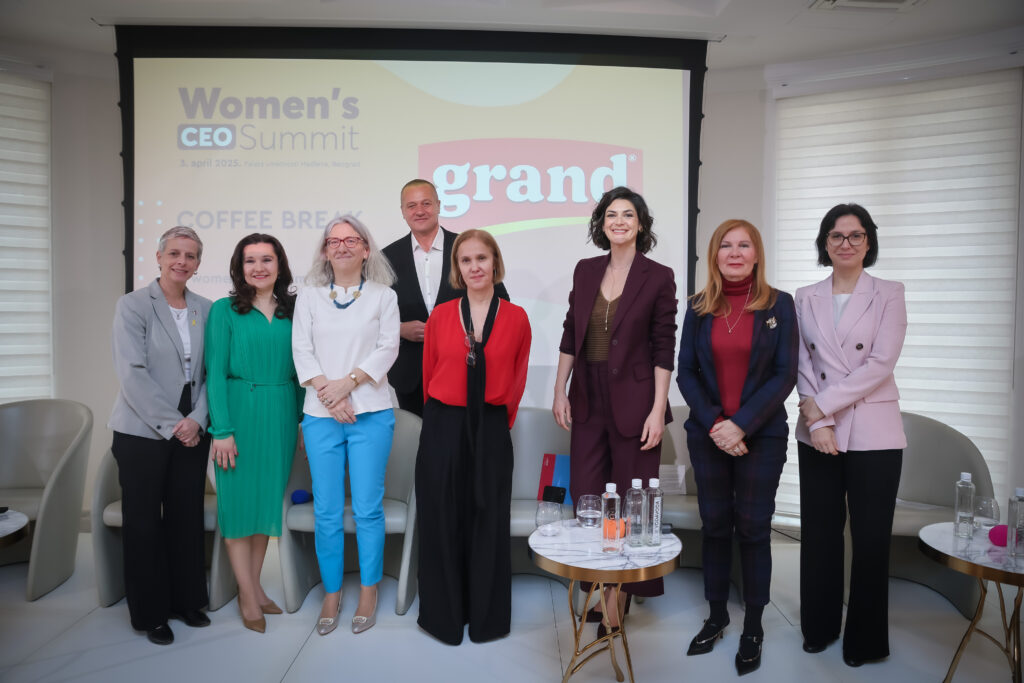 The panel discussed the position of women in diplomacy and compared the experiences of different countries on the topic of equal representation of genders in the position of ambassador and similar functions.
The panel discussed the position of women in diplomacy and compared the experiences of different countries on the topic of equal representation of genders in the position of ambassador and similar functions.
H.E. Anne Lugon Moulin, Ambassador of Switzerland to Serbia said that in Serbia, despite the patriarchal values present in comparison to Switzerland, there is a trend of progress in this field, both in companies, state bodies and the work of the NGO sector, as well as in society itself.
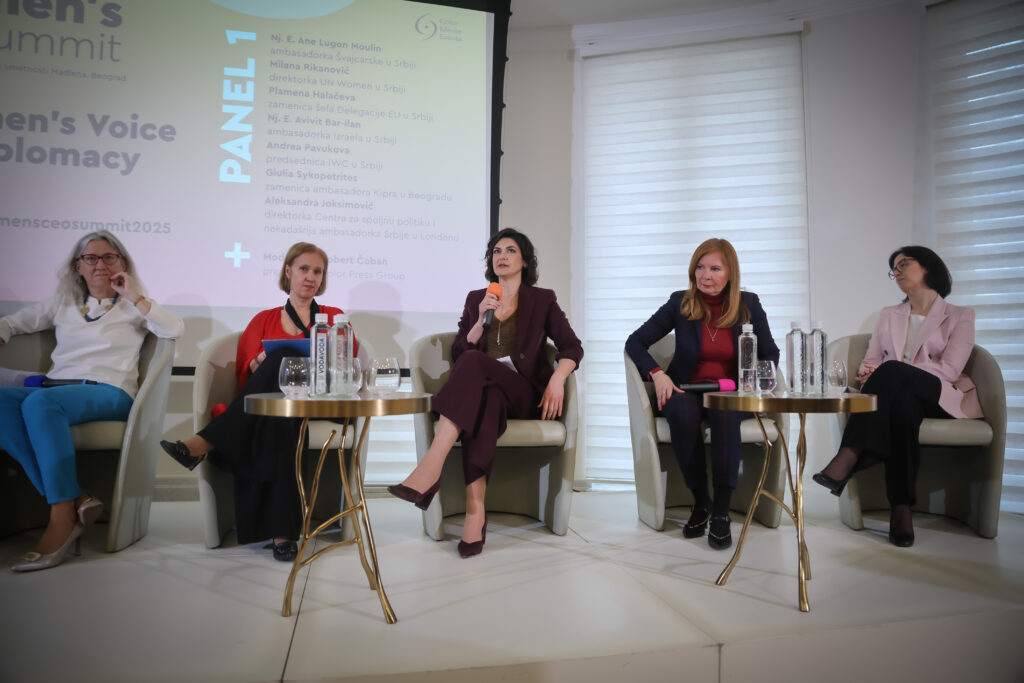 “In Cyprus, we have not fully established gender equality in all fields, traditional values and gender roles in the family are still very present in our society, despite this, there is legislation that regulates these issues. In a way, although we are not a Balkan country, we are quite similar to you in that respect,” said Giulia Sykopetrites, Deputy Ambassador of Cyprus to Belgrade.
“In Cyprus, we have not fully established gender equality in all fields, traditional values and gender roles in the family are still very present in our society, despite this, there is legislation that regulates these issues. In a way, although we are not a Balkan country, we are quite similar to you in that respect,” said Giulia Sykopetrites, Deputy Ambassador of Cyprus to Belgrade.
Milana Rikanović, Director of UN Women in Serbia, noted that the realization of women’s rights should not depend on ideological orientations, but that they are fully in line with basic human rights: “The fight for women’s rights is the same as the fight for human rights”.
The fight for women’s rights is the same as the fight for human rights – Milana Rikanović
The Ambassador of Israel to Belgrade, H.E. Avivit Bar-Ilan, spoke about her personal experience during her military service in Israel, which is mandatory for both women and men for a period of 2 years. She pointed out that 95% of combat positions in the army are available to both men and women. She noted that there is certainly room for progress in other sectors in Israel: “Out of 32 ministries, only 5 are headed by women. Out of 98 ambassadors, 27 are female. I am very much in favor of further and more intensive inclusion of women in these positions”.
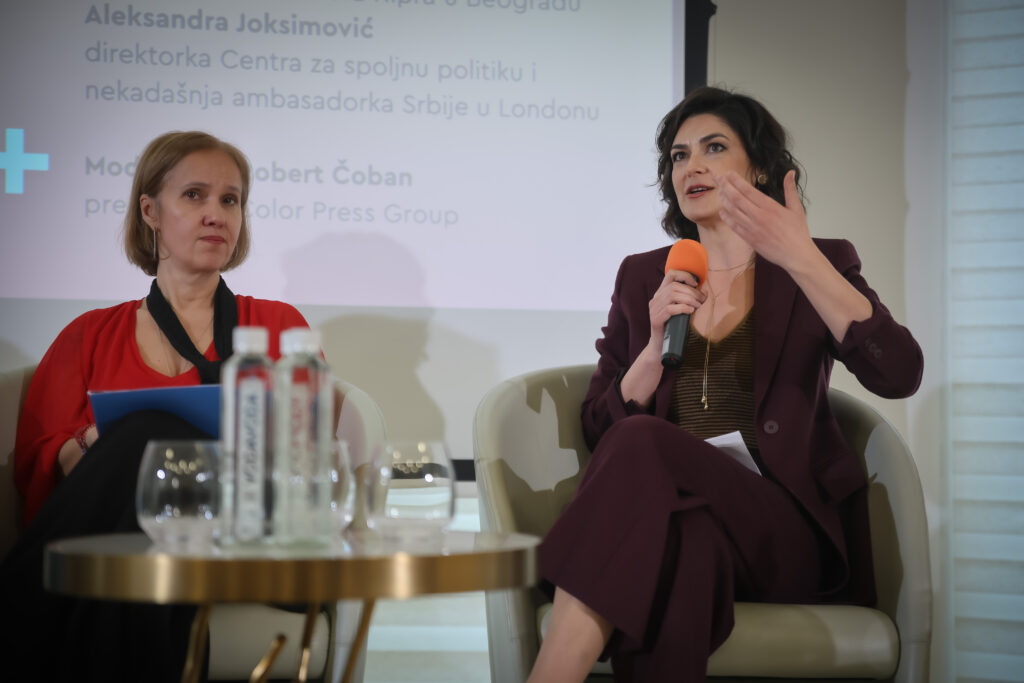 During a discussion on the current perception of the term “woke”, Plamena Halacheva, Deputy Head of the EU Delegation to Serbia, stressed that she believes that the term has progressively become “toxic” and that over time it has come to be associated with the idea of moral superiority, rather than something positive. She stressed that it is important for everyone to participate in the fight for change in the field of women’s rights: “From Afghanistan to America, we have seen the erosion of women’s rights. Countries all over the world report that they face various obstacles in establishing full gender equality”. Aleksandra Joksimović, Director of the Foreign Policy Center and former Ambassador of Serbia to London, added that she also believes that everyone must participate in resolving such issues, including men, and that things like networking and discussions on such topics are a crucial step in encouraging young women.
During a discussion on the current perception of the term “woke”, Plamena Halacheva, Deputy Head of the EU Delegation to Serbia, stressed that she believes that the term has progressively become “toxic” and that over time it has come to be associated with the idea of moral superiority, rather than something positive. She stressed that it is important for everyone to participate in the fight for change in the field of women’s rights: “From Afghanistan to America, we have seen the erosion of women’s rights. Countries all over the world report that they face various obstacles in establishing full gender equality”. Aleksandra Joksimović, Director of the Foreign Policy Center and former Ambassador of Serbia to London, added that she also believes that everyone must participate in resolving such issues, including men, and that things like networking and discussions on such topics are a crucial step in encouraging young women.
All panel participants agreed with this statement, including Andrea Pavukova, president of IWC in Serbia, an organization that is largely involved in networking women who participate in diplomatic life.
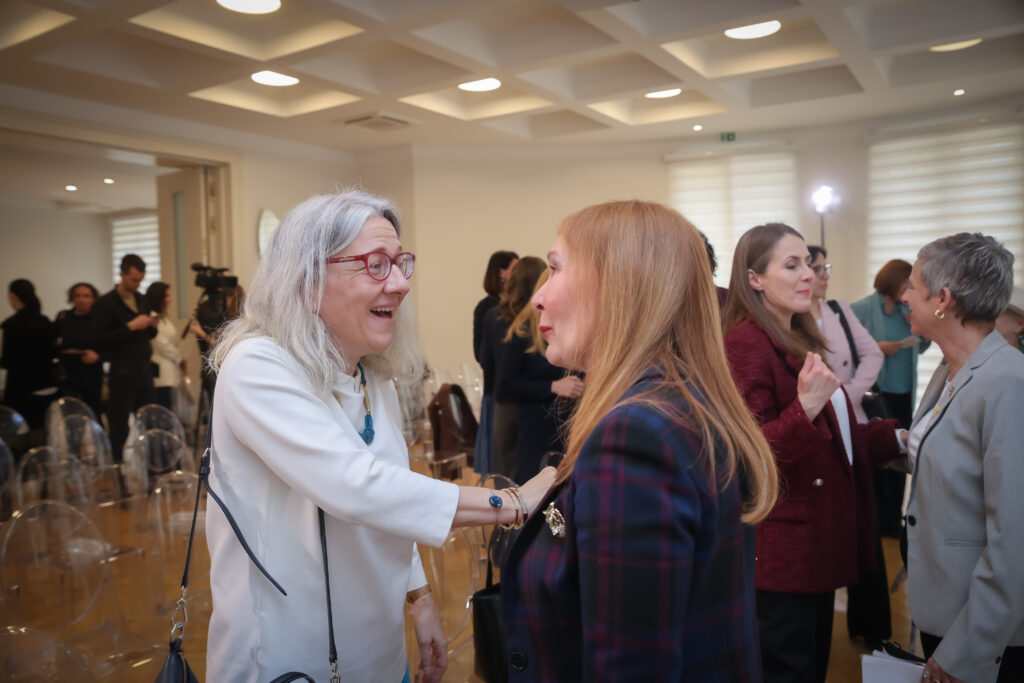 The “Women’s Voice in Diplomacy” panel underscores the persistent and complex challenges women face in achieving equal representation in leadership roles, particularly within diplomacy and governance. The discussions revealed the delicate balance between the legislative progress and deeply rooted cultural norms, highlighting that legal frameworks alone are insufficient to break down long-standing barriers.
The “Women’s Voice in Diplomacy” panel underscores the persistent and complex challenges women face in achieving equal representation in leadership roles, particularly within diplomacy and governance. The discussions revealed the delicate balance between the legislative progress and deeply rooted cultural norms, highlighting that legal frameworks alone are insufficient to break down long-standing barriers.
An insightful thread running through the panel was the recognition of the varied pace of change across different countries. H.E. Anne Lugon Moulin and Giulia Sykopetrites illustrated how social values—whether patriarchal in Serbia or traditional in Cyprus—shape the trajectory of gender equality. These perspectives suggest that while progress is globally shared, the pathways and obstacles are uniquely influenced by local cultures and histories.
The conversations on women’s rights being inseparable from human rights, as emphasized by Milana Rikanović, challenge the ideological lenses through which gender equality is often viewed. This critical reframing positions the issue as universal rather than partisan, emphasizing that advocacy must transcend political divides to achieve lasting change. Similarly, the military example in Israel offered by H.E. Avivit Bar-Ilan reflects how institutional practices can either hinder or accelerate equality, depending on their inclusivity and accessibility.
A notable and nuanced point was raised by Plamena Halacheva, who described the term “woke” as having lost its constructive edge, morphing into a divisive concept in some contexts. This shift in language dynamics mirrors broader societal tensions around activism and inclusion, suggesting that the way we articulate change can influence its reception.
What emerges from this panel is a multidimensional view of diplomacy—not just as a stage for policy and international relations but as a critical arena for gender equity and cultural transformation. By sharing their lived experiences, the panelists effectively bridge the gap between global ideals and local realities. This session serves as a reminder that diplomacy itself can be a tool for societal change, provided the voices and perspectives of women are integral to its processes.
From Afghanistan to America, we have seen the erosion of women’s rights. Countries all over the world report that they face various obstacles in establishing full gender equality – Plamena Halacheva
The ultimate takeaway from these discussions lies in the collective responsibility they advocate. Progress in gender equality requires not only legal and institutional reforms but also active participation from all members of society, including men, as emphasized by Aleksandra Joksimović. Networking, mentorship, and open dialogues, like those fostered in this summit, are essential mechanisms for creating meaningful change. The summit thus acts as both a reflection of existing efforts and a catalyst for future action, urging us to continue building a world where leadership is defined by inclusivity and representation.